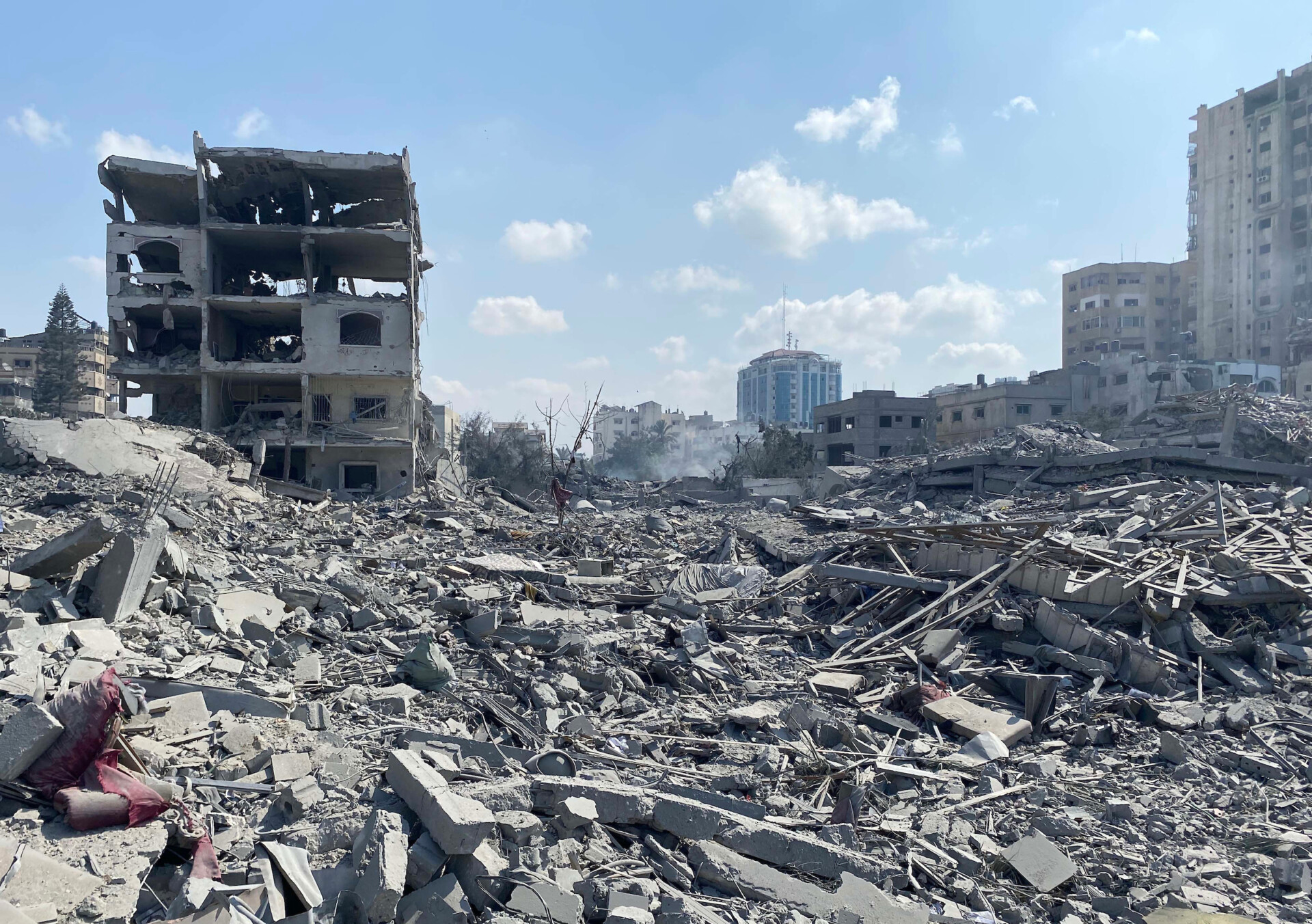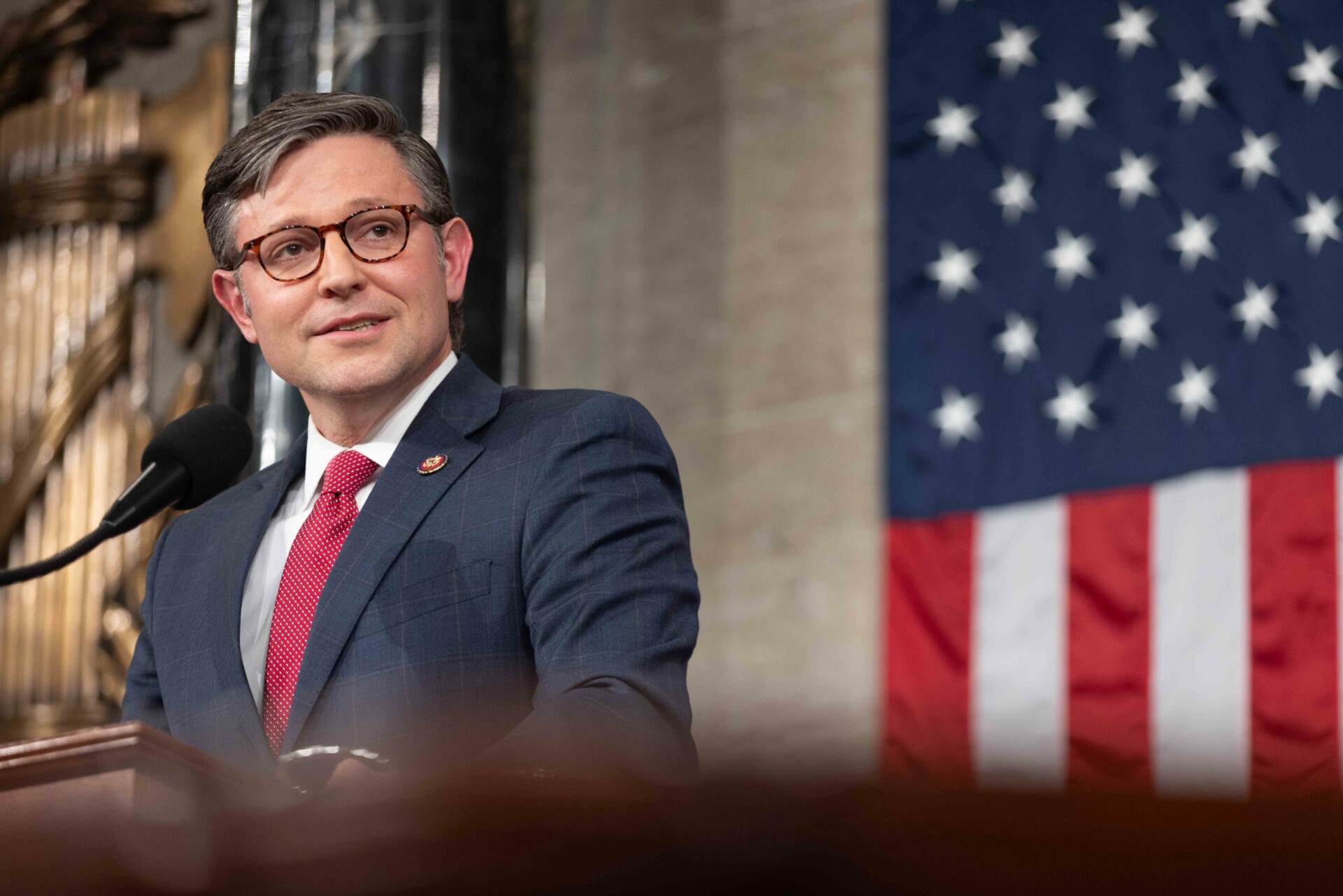
A Proposal for a Gaza Reconstruction Council
Omar Shaban is CIP’s inaugural Leahy Fellow for Human Rights and Security. He is also the founder of PalThink for Strategic Studies, an independent Gaza-based think tank with no political affiliation.
When the war on Gaza ends, the survivors will need immediate help and a government to administer that aid. Yet the debate on the post-war administration of the territory has continued throughout the invasion without reaching a concrete and comprehensive plan. The people who remain in Gaza will require immediate intervention to alleviate their suffering. The near-total devastation of the territory, enormous personal losses of loved ones, and the absence of a political horizon for ending the more than half a century of occupation that preceded October 7th create fertile ground for those seeking to foment more violence and extremism. A comprehensive plan for administration of the territory in the near-term aftermath of the war is necessary to ensure sufficient stability to rebuild the territory and prevent a relapse of fighting.
Terms for Reconstruction
This proposal for the immediate post-war administration of Gaza is built on a set of assumptions: That the Palestinian people have the right to live in dignity, safety, and normalcy, and that they cannot and should not wait for a long process of consultation before these rights are honored; that Israel will not accept Hamas having any political or governing role the day after, and will likely make it difficult for the newly appointed Palestinian Authority (PA) government to operate fully in Gaza; as Hamas did not give its blessing to the recently appointed Palestinian Authority (PA) government, it likely wouldn’t allow it to work in Gaza freely.
Additionally, it would be unrealistic and very risky to attempt to restore public safety or launch any reconstruction process without the adequate coordination and cooperation with the residual personnel of the Gaza de-facto authority, i.e. Hamas, which has been the governing body in Gaza since 2007.
The reconstruction of Gaza will require engaging civil servants of the previous de-facto-authority. Non-Hamas PA employees in Gaza are not enough. There are 5,000 municipal employees in Gaza, none of whom are PA employees. Before October 7, this sector included approximately 24,000 civil public servants (in the education and health sectors) and 18,000 policemen. When Hamas was elected in 2007, all PA employees in Gaza –estimated to number around 25,000, of which 15,000 are civil public servants and 10,000 are security personnel– were dismissed. Many of them have been furloughed since 2007, and are thus in need of re-training and orientation. Therefore, engaging the public servants of the previous de-facto authority is absolutely necessary to get the process of civil administration started. It is not an option not to engage them to enhance public order and to reach results.
In light of those realities, this plan consists of four integrated elements: a Gaza Reconstruction Council, a police force for domestic security, monitoring and management of the Gaza crossings, and strengthening Gaza’s civil society.
The Gaza Reconstruction Council
The first would be to create a Gaza Reconstruction Council. Ranging from 12 to 15 persons, it will be composed mainly of the PA employees who live in Gaza, who will be paid by the PA in Ramallah and were previously granted permits by Israel to exit Gaza (i.e. who are previously vetted). This body will coordinate its work with the international organizations who will be working on the reconstruction of the Gaza Strip. It must be emphasized that this committee is the Gaza branch for the PA government, and it will fully coordinate its work with the PA government. Its members must be allowed to routinely and easily travel to and from Ramallah, meeting with the PA president and Prime Minister. This committee must also announce that it will be working with the public servants of the de facto authority. This is vital to gain Hamas’ cooperation and support. The Gaza Reconstruction Council should announce clearly, its mandate has no political responsibilities, it is a temporary body whose responsibility is confined to launching and administrating the early recovery and reconstruction process. The council must coordinate its work, finance, and plan with the community; it must set up a website to declare its work to the public and to the donors on a regular basis. This council must ensure the separation of reconstruction funds. The Palestinian diaspora should also be involved in this effort, as many possess key technical knowledge and resources needed to mobilize and invest in Gaza’s future funds.
Positions in the regional council should include the: Head of the water authority, Head of the energy authority, Head of contracting syndicate, Head of businessman association, Chief of police, and 2-3 members of civil society.
In addition, the regional council should have representatives of: Ministry of health, Ministry of social affairs, Ministry of local government, Ministry of agriculture, and the Ministry of housing and public works.
As well as observer-liaisons from international organizations, including: UNRWA, World Food Programme, World Health Organization, the International Committee of the Red Cross, and Palestine NGOs.
Domestic and Border Security
The second element is to create a police force for domestic security. A force of 5,000 persons will be composed of 2,500 from PA security forces who have continued to live in Gaza, and 2,500 from residual employees from the Gaza de-facto authority. Responsibility for this force will be given to a head of police from Egypt or Ramallah. 20-23 senior police professionals from Egypt, Jordan and Morocco will be invited to come into Gaza to supervise, train, and orient the newly formed police force. The head of the police force will have a seat on the Gaza Reconstruction Council.
The third element is the monitoring and management of the Gaza crossings. The European Union (EU) and USA in cooperating with the PA crossing department should be invited to be responsible for monitoring and supervising the in-flow of material, along with local staff from different PA ministries from Gaza. This will also require coordination with Ramallah. At a minimum, Rafah crossing must be opened permanently to allow many of the qualified and technical people who exited Gaza during the war to return. There can be no reconstruction process in Gaza without them.
Civil Society
A fourth and particularly important element involves strengthening Gaza’s civil society. A special fund must be created by donor countries to help civil society in Gaza rebuild their offices, assets, equipment, and other infrastructure. This fund should support programs for tolerance, resilience, and non-violence, and complement the work of the council. This includes helping Gaza universities destroyed by the war to rebuild their programs.
There are obviously several conditions necessary for the successful implementation of this proposal. First, the United States, PA, Israel and EU must agree to the plan – and there must be a reasonable level of confidence that Hamas will not actively thwart it. Second, the council must announce it is a temporary body, it doesn’t replace any other governing body, and it doesn’t have any political agenda beyond the reconstruction of Gaza. Finally, the international community, mainly the US, EU and key Arab states must make and follow through on major financial pledges for reconstruction and budgetary support for activities coordinated by the council.
The political challenges to implementing this proposal are considerable, but leaders must show vision and courage necessary to confront and overcome them if we are to avoid repeating this nightmare.


